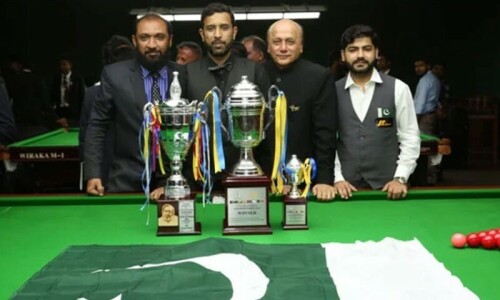HYDERABAD: Human Rights Commission of Pakistan’s (HRCP) Sindh chapter vice president Qazi Khizar Habib has said 2020 registered an increase in the incidents of missing persons and crime in Sindh.
Showing concern over the state of human rights in Sindh, he shared details of the situation in the province in 2020, but expressed satisfaction over the administrative orders issued and arrangements made by Sindh government to tackle the Covid-19 emergency.
Addressing a press briefing in the local press club on Monday, he said that during Covid-19 pandemic, the Sindh government passed Sindh Covid-19 Emergency Relief Ordinance 2020 which became an act on July 7, 2020. The private sector was barred from laying off their employees during the lockdown period, he added.
He said that the act also provided relief to parents in terms of payment of school fees and allowed tenants to delay housing rent payments.
He said Sindh Assembly amended at least five laws to meet the requirements of Financial Action Task Force. He said the Sindh police IG was allegedly kidnapped on the night between Oct 18-19 and taken to a sector commander’s office where he was forced to issue arrest orders for politician retired Captain Safdar Awan who was staying in a hotel in Karachi with his spouse Maryam Nawaz Sharif.
He said the data from Sindh prisons department indicated that 121 prisoners were awarded death sentence in 2020. He said that no executions were, however, carried out. He said that as of end-2020, 513 prisoners in Sindh were facing capital punishment.
He said that according to the Sindh Human Rights Defenders Network, a total of 127 persons went missing in Sindh, of which 112 resurfaced while 15 were still missing.
He disclosed at least six cases of forced conversion of Hindu girls were reported in Sindh.
He pointed out that in violation of right to freedom of association, the federal government decided to formally ban three Sindhi nationalist political entities in May including the Jeay Sindh Qaumi Mahaz (Arisar) and two other political groups operating in Sindh labelled as ‘militant’ by authorities.
He said that four-year term of local governments in Sindh ended on Aug 30, 2020, but the Sindh government had not announced a new date for holding next local bodies elections.
He said that killing in the name of honour continued in Sindh last year. A woman was allegedly stoned to death by her relatives in Jamshoro on June 27 apparently in an honour killing attempt, he said, adding that a post-mortem report confirmed that she had been tortured.
He said that based on reports in press, the HRCP recorded 197 honour killing cases in 2020 in Sindh, involving 215 victims — 79 men and 136 women.
He said that according to Sindh Education Minister Saeed Ghani, around 3.5 million children in Sindh were out of school. Pursuing its privatisation programme, the Pakistan Steel Mills management removed over 4,500 workers and sought to retrench more workers.
Present on the occasion were HRCP coordinator Imdad Soomro, Parveen Soomro, Saeed Baloch, Ghufrana Arain and others.
Published in Dawn, June 22nd, 2021














































Dear visitor, the comments section is undergoing an overhaul and will return soon.